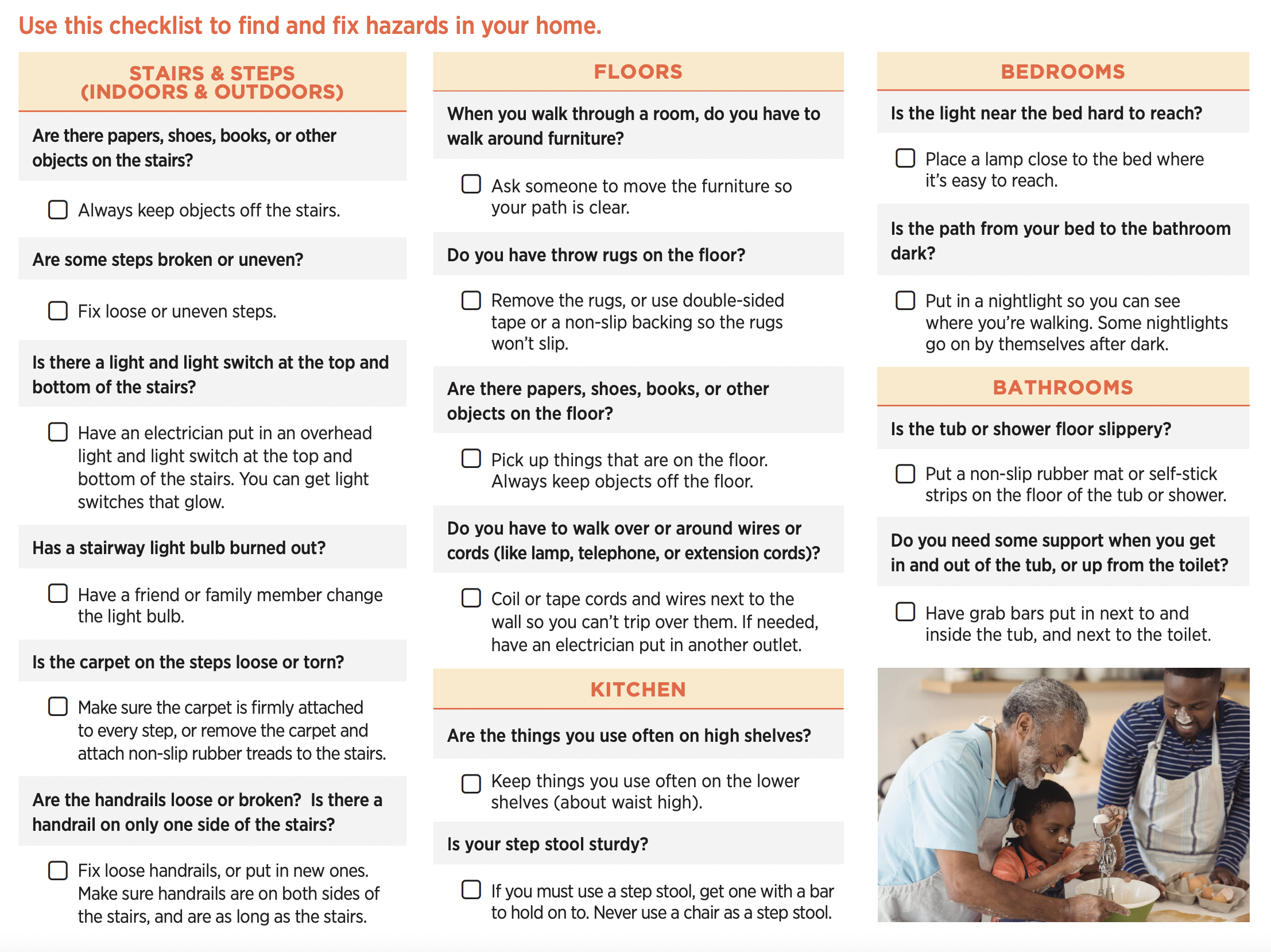The Single Strategy To Use For Dementia Fall Risk
The Single Strategy To Use For Dementia Fall Risk
Blog Article
The Dementia Fall Risk Diaries
Table of ContentsNot known Facts About Dementia Fall RiskSome Of Dementia Fall RiskThe Basic Principles Of Dementia Fall Risk The Main Principles Of Dementia Fall Risk
An autumn danger analysis checks to see exactly how likely it is that you will certainly drop. It is primarily done for older adults. The assessment typically includes: This consists of a collection of inquiries concerning your general health and wellness and if you've had previous falls or problems with balance, standing, and/or strolling. These tools test your stamina, balance, and stride (the method you walk).Treatments are recommendations that may lower your risk of dropping. STEADI consists of 3 steps: you for your threat of dropping for your threat aspects that can be enhanced to attempt to protect against falls (for example, balance issues, impaired vision) to minimize your threat of dropping by using effective methods (for instance, supplying education and resources), you may be asked a number of concerns consisting of: Have you fallen in the past year? Are you stressed regarding dropping?
If it takes you 12 secs or more, it may indicate you are at greater danger for a loss. This test checks stamina and equilibrium.
The settings will certainly obtain more challenging as you go. Stand with your feet side-by-side. Relocate one foot midway ahead, so the instep is touching the huge toe of your other foot. Relocate one foot completely in front of the other, so the toes are touching the heel of your various other foot.
Rumored Buzz on Dementia Fall Risk
A lot of drops happen as an outcome of multiple adding factors; therefore, managing the danger of dropping begins with recognizing the factors that add to drop danger - Dementia Fall Risk. Some of the most relevant threat aspects include: Background of prior fallsChronic clinical conditionsAcute illnessImpaired gait and equilibrium, reduced extremity weaknessCognitive impairmentChanges in visionCertain high-risk medicines and polypharmacyEnvironmental aspects can additionally enhance the threat for drops, consisting of: Poor lightingUneven or harmed flooringWet or slippery floorsMissing or damaged hand rails and get hold of barsDamaged or improperly fitted tools, such as beds, mobility devices, or walkersImproper usage of assistive devicesInadequate guidance of the individuals staying in the NF, consisting of those that show aggressive behaviorsA effective autumn risk monitoring program requires a thorough professional analysis, with input from all members of the interdisciplinary group

The treatment strategy ought to also consist of interventions that are system-based, such as those that promote a secure setting (ideal illumination, handrails, get bars, and so on). The effectiveness of the treatments should be assessed regularly, and the treatment plan revised as required to show modifications in the fall risk evaluation. Implementing an autumn threat management system utilizing evidence-based ideal practice can reduce the occurrence of falls in the NF, while restricting the capacity for fall-related injuries.
Rumored Buzz on Dementia Fall Risk
The AGS/BGS standard recommends screening all grownups aged 65 years and older for fall danger every here are the findings year. This screening includes asking patients whether they have fallen 2 or even more times in the past year or sought medical attention for a loss, or, if they have not fallen, whether they feel unstable when walking.
Individuals that have fallen once without injury ought to have like this their equilibrium and gait examined; those with gait or equilibrium irregularities need to get additional evaluation. A background of 1 loss without injury and without gait or balance troubles does not warrant further assessment past ongoing annual autumn danger screening. Dementia Fall Risk. An autumn danger evaluation is called for as component of the Welcome to Medicare assessment

The Buzz on Dementia Fall Risk
Documenting a falls history is one of the quality indicators for autumn avoidance and management. copyright medicines in certain are independent forecasters of drops.
Postural hypotension can typically be alleviated by minimizing the dosage of blood pressurelowering medicines and/or quiting medicines that have orthostatic hypotension as a negative effects. Use of above-the-knee support pipe and sleeping with the head of the bed elevated might likewise reduce postural reductions in blood stress. The advisable components of a fall-focused browse this site health examination are received Box 1.

A yank time higher than or equivalent to 12 secs recommends high loss danger. The 30-Second Chair Stand examination assesses lower extremity strength and balance. Being unable to stand from a chair of knee elevation without using one's arms shows enhanced loss danger. The 4-Stage Balance examination assesses fixed equilibrium by having the person stand in 4 placements, each gradually extra challenging.
Report this page